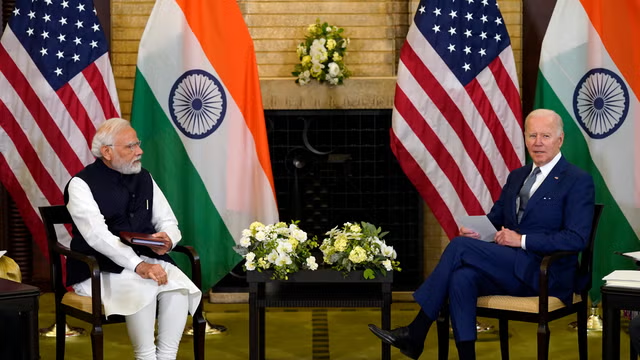Newsmatro

Indian-American lawmakers have emphasized the need for constructive dialogue rather than lecturing New Delhi on human rights issues.
Speaking at the ‘Desi Decides’ Summit organized by Indian American Impact, they reiterated their commitment to raising human rights concerns with Indian leadership but acknowledged that a more conversational approach would be effective.
Congressman Ro Khanna, co-chair of the Congressional India Caucus, highlighted the historical context of India’s colonial past, explaining that a lecturing tone could be counterproductive.
“India was colonised for over 100 years. So, when we’re having a conversation about human rights, and you’re having a conversation with [External Affairs Minister S.] Jaishankar or someone else, you have to understand that just coming in from the perspective of lecturing India.
When they say that we’ve had colonial powers lecture us for hundreds of years, it is not going to be productive,” Khanna stated.
Khanna was joined by fellow Indian-American lawmakers Shri Thanedar, Pramila Jayapal, and Dr. Ami Bera.
The panel discussion was moderated by ABC national correspondent Zohreen Shah, who posed questions about Prime Minister Narendra Modi’s relations with the Muslim community.
Khanna suggested a balanced dialogue, saying, “Having a conversation [with India] saying, here are the imperfections in our democracy, what are the imperfections in your democracy, and how do we collectively advance democracy and human rights, I think is a more constructive approach.”
Dr. Ami Bera concurred, adding that India’s secular nature is crucial for its identity and global perception. He compared the situation with the United States, noting that despite challenges, the U.S. maintains a vibrant democracy and opposition.
“You see what’s happening to the freedom of the press. You’re not really seeing a viable opposition party or it’s being dismantled.
The vibrant democracy has to have all of those things, freedom of speech, freedom of the press, the ability to push back,” Bera said.
Pramila Jayapal echoed the need for a nuanced stance, stressing that critique should be part of their Congressional responsibilities without appearing as lecturing.
“We shouldn’t lecture, I agree with Ro [Khanna]. But we do have to think about all of the United States’ interests. That is economic, for sure. India is an important partner for us…
It is also important for us to think about our values,” Jayapal stated. She acknowledged that raising these issues could attract criticism but maintained that addressing concerns like freedom of religion and press was essential.
Shri Thanedar emphasized the strategic importance of a robust India-US relationship, noting India’s role in countering China’s aggression. “We need a strong US-India relationship.
India historically has been playing both sides, Russia and US. But it’s time for India to commit to a strong friendship with the United States, and that’s something that I want to work on,” Thanedar said.
In conclusion, the lawmakers underscored the importance of engaging India through dialogue and partnership while upholding shared democratic values and addressing human rights concerns constructively.